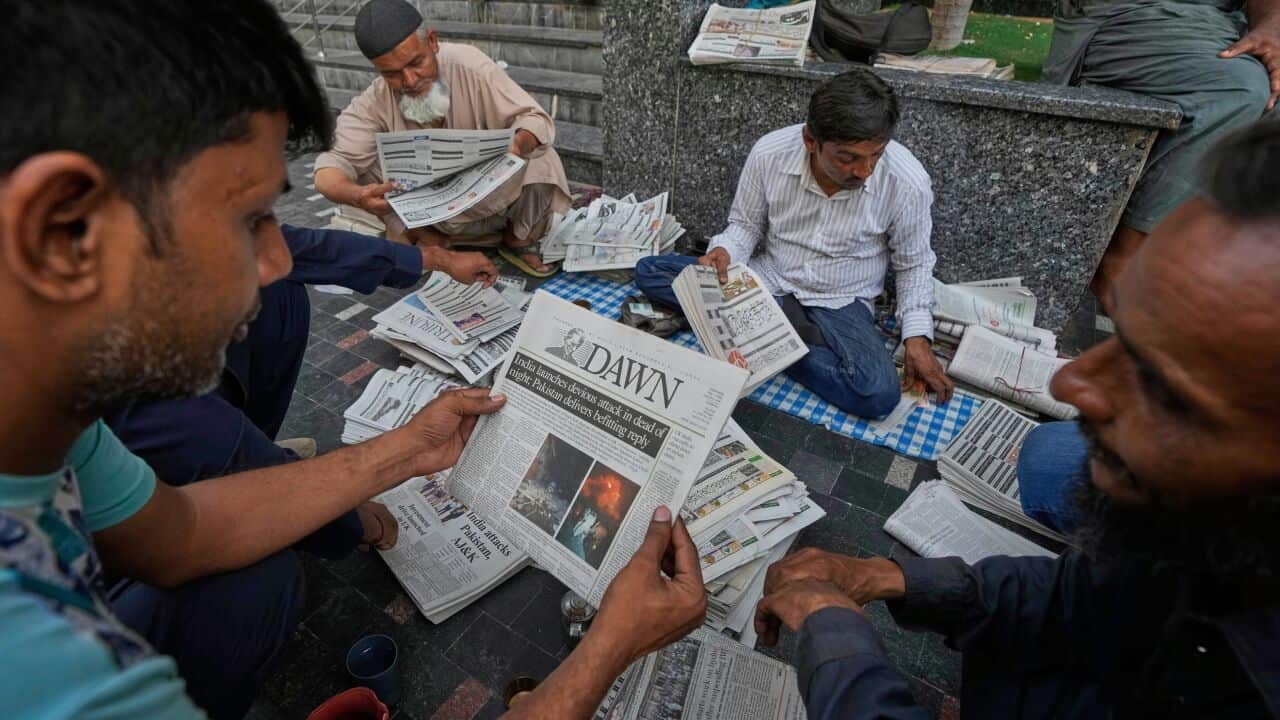Highlights
- Melbourne-based Ankita Chopra is one of the very few female professional dhol players worldwide
- Dhol is a type of double-headed drum widely used in the Punjab region of South Asia
- Due to its bulky size and weight, the dhol requires a high level of energy to play and has long been consider a man’s domain
The thunderous sound of the dhol, a double-headed drum, is synonymous with celebrations in Punjabi culture, whether it’s weddings or spiritual gatherings.
But, until very recently, the dhol had largely been seen as a man's instrument.
Twenty-year-old Ms Chopra is helping to change that perception – one beat at a time.
An international nursing student at Melbourne's La Trobe University, Ms Chopra is also one of the very few professional female dholi (dhol players) anywhere in the world.
Her playing has quickly sent ripples through Australia's Punjabi music circles and she has become known for whipping her audience into a frenzy at events like those held for Holi and Teeyan festivals.
Ms Chopra tells SBS Punjabi that as a child she was fascinated by the instrument.
At age five, she first picked up a dhol, and she has not looked back since.
"It has been 15 years since I started playing dhol. My family are regular visitors of Dera Baba Balak Nath Mandir in Jalandhar [in India's Punjab province], and I grew up hearing the sound of dhol at satsang [religious or spiritual congregations]," the 20-year-old says.

Ankita started playing Dhol at a very young age and credits her dad for igniting the passion for the percussion instrument. Source: Supplied by Ankita Chopra
"At a time when many people weren't used to watching girls play the dhol, my family ensured I got all the training and support once they saw my inclination towards the instrument. Now playing the dhol is kind of natural to me, and it's my identity," she says.
Ms Chopra migrated to Australia two years back.
"I never realised the seriousness of this art until I arrived in Australia," she says. "As soon as I started playing dhol at events, word spread through the community."
"People still haven't seen too many women playing live dhol, and initially, some people do give me the eye, but when they hear me play, they just get all their answers!," she says.
With many shows in Victoria and inter-state already behind her, Ms Chopra has a busy schedule planned for the rest of the year.
Nothing comes easy
Given the heavy weight of the dhol, playing the instrument requires tremendous physical and mental strength.
"It has always been perceived that a dhol player must have 'manly' strength and musical ability, which is possibly the reason why people have their doubts when they see me as a girl playing professionally," Ms Chopra says.
"Playing dhol for hours at a stretch can result in hand blisters, but I've never stopped. I've even played with bandages on my hands," she adds.
Defying stereotypes with her dhol beats, Ms Chopra says, "Although women can have what they want these days, we still need to prove ourselves in whatever we do."
I don't want to be known as a 'girl playing the dhol' but as an 'individual playing the dhol perfectly'
Ms Chopra's playing has seen her share the stage with some big-name Punjabi performers.
"The famous folk singer Sarbjit Cheema told me, 'You are the first female who has played live with a Punjabi singer'," she claims.
"It has been an honour to play live dhol with singers like Diljaan, Sarbjit Cheema and at various Indian events around Australia," she says.
Click on the audio player at the top of the page to listen to this conversation in Punjabi.





